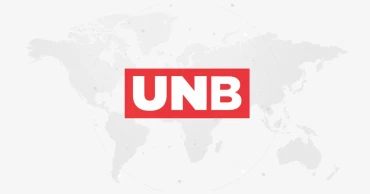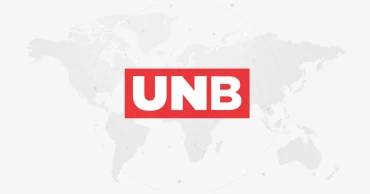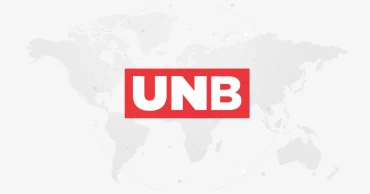covid restrictions
China’s protests are small but significant
Reports coming out from China speak of troubles whose roots lie in economic policies. They are immediately linked to Covid restrictions which have been called “draconian” but for a long while had been seen as effective. However, its "zero Covid" policy shows that the virus has not been conquered as yet as some had thought and hoped.
Commentators say , this is not the main reason why the street protests came but it accelerated the public angst over economic difficulties that had been brewing over many years. Now that has peaked and caused public unrest. The source of such information and comments are of course Western media and academia that have a stake in China’s economic pain. It means the global market competition will be less with the West and the market supremacy it had for long can continue longer. This is only to be expected.
Read more: China’s Communist Party vows 'crackdown on hostile forces' as public tests Xi
It would however be a bit foolish to depend on Western opinion alone to judge what is going on in China. Suffice to say that its public anger that has gone public which is the first instance since 1989 leading to what had been called the “Tienanmen square “ conflict. This writer had the chance to visit China soon after that and remembers the “business as usual” life on the streets of Beijing and Guang Zu. However, the lips of all were sealed and at the official meeting, visitors were told not to mention the event at all.
Security and economics
For the moment China is focusing on taking security measures. Authorities have decided not to exert too much force and the demos have almost disappeared overnight anyway. That was to be expected. These were not organized protests but spontaneous bursts of frustration. However, actions will certainly be taken and the security forces will certainly intern many of the street protestors.
If economic policies are responsible to which have been added the burden of zero covid, the problem lies with problem solving methods not ideology. Its covid handling was tough but initially successful and had its reluctant admirers in the West also. But China’s covid policy shows that the virus is stronger than the administrative methods in the country of its origin in suppressing it. There was a major gap which we were learning now.
Read more: China lockdown protests pause as police flood city streets
The main issue is however economic. It’s been said that China’s property market is in shambles and the debt burden has been piling up making the next few years very difficult. The US has also cut off chip supply, adding to the difficulties, making it part of a much bigger and much more important global economic war.
Bangladesh
Bangladesh will be affected by China’s economic difficulties and should start assessing what needs to be done. Media should pick up the topic and push the experts to probe the issue. Sadly, both our media and academia are more into media comments rather than in-depth research. That Bangladesh will have to share the problems is certain and with the high volume debt payments to begin in 2026 , Bangladesh can’t afford to take this lightly along with the rest of our woes.
3 years ago
PM’s visit to be delayed for political situation, Covid restrictions in Japan: FM
Foreign Minister AK Abdul Momen on Thursday said the planned visit of Prime Minister Sheikh Hasina to Japan would be delayed due to a number of reasons including political situation in Japan and restricted mobility due to Covid-19.
"They have invited us. We are observing the situation," he told reporters at a media briefing at a hotel in Dhaka.
Momen also referred to resignation of three cabinet members of Japan and hinted that Japan's Prime Minister Fumio Kishida might face more questions.
In a separate briefing, State Minister for Foreign Affairs Md Shahriar Alam on Thursday hinted at the possibility of rescheduling PM Hasina's planned official visit to Japan.
Read more: PM’s Japan visit will happen soon, Shahriar Alam says
"The visit will soon take place. We have not made any official announcement regarding the visit," he told reporters, noting that the date will be announced later.
After his meeting with Japanese State Minister for Foreign Affairs Takei Shunsuke, held at InterContinental Hotel, Dhaka today, Shahriar interacted with journalists present there.
He said there are many aspects in diplomacy and changes take place even at the last moment.
"You heard about a date but the visit is not taking place on that date considering the current perspective," he said.
Shahriar said there are some agreements and MoUs which will be signed during Prime Minister-level talks.
Earlier, FM Momen told the media that the visit might take place from November 29.
Read more: Bangladesh seeks direct shipping connectivity, PTA with Sri Lanka
On Wednesday evening, Momen said Japan is ready to receive a Bangladesh delegation led by PM Hasina to further deepen the relations between the two countries.
"Bangladesh-Japan relations are very deep. It will further be deepened through the visit," he told reporters.
Momen said Japan is keen to elevate the comprehensive relations to a strategic one. "We like each other."
3 years ago
Asia shares rise on optimism about easing COVID restrictions
Asian shares advanced Monday across the board as buying set in after the lull of a U.S. national holiday.
Analysts said the optimism may be driven by expectations the U.S. may decide to cut Chinese tariffs, a welcome move that would also help tame inflation.
China’s Commerce Ministry said Tuesday that Vice Premier Liu He spoke with Treasury Secretary Janet Yellen about coordinating economic policy between the two biggest economies and maintaining the stability of supply chains.
In a statement, it also said the Chinese side “expressed its concern over issues such as the removal of additional tariffs and sanctions imposed by the United States on China and fair treatment of Chinese companies.” The two sides agreed to continue their discussions, it said.
Investors also have been encouraged by the lifting of restrictions related to the coronavirus pandemic across the region, including in Japan, which had been booming with tourists from abroad ahead of the pandemic.
“The quiet economic calendar yesterday brings sentiments to focus on the single relief headline of a potential US tariff-easing decision, which could run the risks of a sharp paring back in speculative bullish bets in the event of any inaction,” in taming inflation,” Yeap Jun Rong, a market strategist at IG in Singapore, said in a commentary.
But risks remain because of inflation and slowing economic activity in some countries. A resurgence in COVID-19 infections in Europe, the U.S. and parts of Asia is also looming, bringing the threat of a reversion to pandemic precautions.
Japan’s benchmark Nikkei 225 added nearly 1.0% in morning trading to 26,404.90. Australia’s S&P/ASX 200 rose 0.3% to 6,632.00. South Korea’s Kospi jumped 1.8% to 2,342.24. Hong Kong’s Hang Seng gained 0.8% to 21,997.04, while the Shanghai Composite inched up 0.1% to 3,409.95.
Market players are also closely watching for an interest rate decision by the Reserve Bank of Australia. It is expected to raise its key rate by 50 basis-points. Minutes of the latest policy meeting of the Federal Reserve are also due out on Wednesday and could bring hints on future policy.
Read: Asian shares gain as investors shrug off downbeat data
Global investors have been worried about surging inflation and the possibility that higher interest rates could bring on a recession in some economies. U.S. trading was closed Monday for Independence Day.
The futures for the Dow industrials and the S&P 500 were both up 0.4% early Tuesday.
Shares ended last week with a rally, with the S&P 500 surging 1.1%. The Dow gained 1% and the Nasdaq rose 0.9%. The Russell 2000 index of smaller companies gained 1.2%.
In the first half of this year, the S&P 500 had its worst performance since the first six months in 1970. It’s now down 20.2% from the peak it set at the beginning of this year.
The risk of a recession is simmering as the U.S. Federal Reserve aggressively hikes interest rates. The Fed is raising rates to purposefully slow economic growth to help cool inflation, but could potentially go too far and bring on a recession.
In Germany, Chancellor Olaf Scholz gathered top employer and labor union representatives at his Berlin office Monday to seek ways of addressing the impact of rising prices while preventing a spiral of inflation in Europe’s biggest economy.
In energy trading, benchmark U.S. crude surged $1.87 to $110.30 a barrel. It gained $2.67 on Friday to $108.43 a barrel. Trading was closed Monday. Brent crude, the international standard, lost 3 cents to $113.47 a barrel.
In currency trading, the U.S. dollar edged up to 136.15 Japanese yen from 135.69 yen. The euro cost $1.0434, up from $1.0423.
3 years ago
Shanghai to reopen subways in easing of COVID restrictions
The locked-down Chinese metropolis of Shanghai will reopen four of its 20 subway lines Sunday as it slowly eases pandemic restrictions that have kept most residents in their housing complexes for more than six weeks.
The city will also restart 273 bus lines connecting major urban centers, airports, train stations and hospitals as it resumes cross-district public transit, Yu Fulin, director of the Shanghai Transport Commission, said at a daily pandemic briefing Thursday.
Also read:Shanghai re-tightens on COVID, frustrating trapped residents
It wasn't immediately clear how frequent the service would be. Bus service resumed on a trial basis within three outlying districts this week, with buses running every 30 to 90 minutes during daylight hours.
The lockdown of China's largest city has dealt a blow to the economy and frustrated residents, particularly as many countries elsewhere in the world move away from such harsh measures as they try to live with the virus. But officials have stuck to a ‘zero-COVID’ approach, saying that lifting restrictions could strain the public health system and lead to more deaths, particularly among the not fully vaccinated elderly.
The outbreak in Shanghai has taken 580 lives, according to official statistics, making it the deadliest one since the initial outbreak in the city of Wuhan in early 2020.
Even as the number of new cases plummets, authorities are relaxing restrictions in a slow and deliberate manner as they try to ensure that the virus no longer spreads anywhere outside of quarantine facilities and areas with known infections.
The city of 25 million people recorded about 700 new cases on Wednesday, accounting for most of the about 1,000 cases nationwide.
Also read: New tests to decide Shanghai reopening as Beijing stocks up
Authorities in Beijing, which reported 55 new cases, closed some subway stations and bus lines, banned dining in restaurants and strongly encouraged residents to work from home as they try to prevent a Shanghai-scale outbreak in the Chinese capital.
Elsewhere in China, the city of Guang'an in in China's southwestern Sichuan province was locked down on Wednesday. The province recorded about 150 new cases.
3 years ago
No more Covid restrictions from Feb 22: Cabinet Secretary
The government has decided not to extend the ongoing Covid-19 restrictions anymore from February 22, said Cabinet Secretary Khandker Anwarul Islam on Sunday.
"A clear instruction has been given to reopen schools (secondary and higher educational institutes) on the day after tomorrow (Feb 22) and primary schools on March 01 as no Covid-19 restriction will be imposed anymore from February 22. But all will have to be careful so that everyone must wear masks," he said while briefing reporters after the Cabinet meeting.
Prime Minister Sheikh Hasina chaired the virtual meeting from her official residence Ganobhaban, while others joined it from the Cabinet Division of Bangladesh Secretariat.
The Cabinet Secretary said the authorities concerned were instructed to ensure that everyone uses masks in any programme and gathering.
Noting that a programme was taken to vaccinate one crore people on February 26 next across the country, he said the Cabinet requested the media to circulate its news massively.
Read: NTAC suggests axing post-arrival Covid test for fully vaccinated
He said the field administration including DCs, SPs and civil surgeons, as well as mayors, chairmen, other local government representatives and men of political parties were asked to campaign massively so that no one is left out of the vaccination coverage after February 26.
Besides, the Health Ministry is mulling to vaccinate the under-12 children, gathering experiences from other countries.
On January 13 last, the government imposed 11-point Covid-19 restrictions till February 7 amid the growing concerns over the transmission of Omicron, a new variant of coronavirus, in the country. Later, the restrictions were extended up to February 21.
4 years ago
England lifts COVID restrictions as omicron threat recedes
Most coronavirus restrictions including mandatory face masks were lifted in England on Thursday, after Britain’s government said its vaccine booster rollout successfully reduced serious illness and COVID-19 hospitalizations.
From Thursday, face coverings are no longer required by law anywhere in England, and a legal requirement for COVID passes for entry into nightclubs and other large venues has been scrapped.
The government last week dropped its advice for people to work from home as well as guidance for face coverings in classrooms.
The so-called “Plan B” measures were introduced in early December to stop the rapid spread of the omicron variant from overwhelming health services and to buy time for the population to get its booster vaccine shot.
Health Secretary Sajid Javid said the government’s vaccine rollout, testing and development of antiviral treatments combine to make “some of the strongest defenses in Europe,” allowing a “cautious return” to normality.
But he added that “as we learn to live with COVID, we need to be clear eyed that this virus is not going away.” While infections continue to fall, health officials said that omicron remained prevalent across the country, especially among children and the elderly.
Read: Hope seen once omicron wave increases global immunity, even as new version of variant found
Hospital admissions and the number of people in intensive care units have stabilized or fallen, and daily cases have fallen from a peak of over 200,000 cases a day around New Year to under 100,000 in recent days.
Prime Minister Boris Johnson said last week that the surge of omicron infections “has now peaked nationally.”
As the government moved away from legal measures, some shops and public transport operators say they will continue to ask people to don their face masks. London Mayor Sadiq Khan said face coverings will still be required on the capital’s buses and subway trains.
The legal requirement for those infected to self-isolate for five full days remains, but Johnson said that measure will also end soon, to be replaced with advice and guidance for those infected to be cautious.
Also read: Covid in Bangladesh: 11,434 more cases, 12 deaths and positivity rate rises to 28.49%
Health officials have said they are planning a longer-term, post-pandemic strategy that treats COVID-19 more like the flu.
Scotland, Wales and Northern Ireland, which make their own public health rules, have similarly relaxed their virus restrictions.
4 years ago
Lockdown will return if Covid restrictions violated: Health Minister
The Bangladesh government has warned that it'll be forced to impose a full lockdown in the country if people fail to adhere to the recently issued Covid-19 restrictions.
"We urge all the people of this country to abide by the recently issued 11-point Covid-19 guidlines," Health Minister Zahid Maleque said on Saturday.
"If these instructions are followed, there will be no need for a lockdown in the country. If another lockdown is imposed, people and the country will face losses again," he said.
He, however, made it clear that the government could impose a complete lockdown in Bangladesh "if these guidelines are not followed".
The Health Minister was talking to reporters on the sidelines of the inauguration function of a CT scan and Dialysis unit at Manikganj General Hospital in the morning.
Amid the growing concern over the new Omicron variant of to coronavirus, the government on January 13 came out with the restrictions on movement of people and public transport vehicles.
Read:Don’t leave your workplaces: Health Minister to expats
4 years ago
Will make up whatever students missed out on during closure: Dipu Moni
Remedial lessons will be provided to students who have missed out on online classes and other alternative educational activities during the time educational institutions were closed due to covid restrictions.
Education Minister Dr. Dipu Moni said this while talking to the press in Chandpur Saturday.
“We opted for online and television lessons during school closure. Besides, we have relied on assignments for evaluation during this time,” she said.
Then the minister conceded the fact that some students could not be brought under these programmes due to the socioeconomic status quo, and revealed that her ministry is formulating a specific plan to make up for this once the institutions reopen.
Read: Schools, colleges to reopen on Sept 12: Dipu Moni
“Although we managed to reach a huge portion of students through assignments, some still missed out. We are working on a plan to bring all students up to speed with the current curriculum and plan on providing remedial lessons to those who missed out,” she said.
Earlier on Saturday, Deputy Minister for Education Mohibul Hasan Chowdhury Nowfel said that the Ministry of Education is planning to take classes one day a week after the reopening of schools and colleges on September 12.
Nowfel said this while talking to journalists after attending a function at Chattogram Medical College and Hospital.
Read: Scientific evidence to guide decision on SSC, HSC exams: Dipu Moni
"We're hopeful of starting physical classes following the Education Minister's announcement and our primary plan is to take classes one day a week but it may be changed," he said.
Efforts will continue to take the SSC and HSC exams in-person with a brief syllabus, but the assignments will continue as before, he said.
The long closure of schools and colleges due to the Covid-19 pandemic has created mental pressure on the students and there had been efforts to continue education online but that was not enough, Nowfel added.
4 years ago
Sundarbans set to reopen for tourists on Sep 1
After nearly five months of closure due to the Covid restrictions, the Forest Department is reopening the Sundarbans, the world’s largest mangrove forest and a Unesco World Heritage Site, on September 1 (Wednesday).
The decision was taken at a meeting between leaders of the Forest Department and the Tour Operators Association of Sundarbans, Khulna, on Sunday.
Read:Red tapes are holding back the much-hyped Sundarbans conservation project
M Nazmul Azam David, the general secretary of the Tour Operators Association, confirmed the information to UNB.
However, it won’t be business as usual as the Forest Department has given some rules and conditions before reopening the forest for tourists.
4 years ago
Dhaka city dwellers breathe clean air throughout July, says study
This past July the Dhaka city dwellers got a special treat from the nature. The air they breathed in was much cleaner as the air quality significantly improved thanks largely to pollution-reducing rain, Eid exodus and Covid restrictions.
Even Dhaka got a niche among the world’s top ten cities having clean air from July 22-31 last, a relief for an overcrowded city known for its severe air pollution.
Read: Dhaka’s air quality improved in lockdown, a blessing in disguise!
According to the data of the US-based IQAir Visual, Dhaka was also among the top five cities for particular times on July 24 and 30 for the good air quality, said Prof Dr Ahmad Kamruzzaman Majumder, the founder and director of Centre for Atmospheric Pollution Studies (CAPS) of Stamford University Bangladesh.
The city’s air quality significantly improved in July as its Air Quality Index (AQI) score remained less than 100 in the most of days of the month.
The AQI score 0-50 is considered as ‘good’ air quality, while 51-100 as moderate, 101-150 as unhealthy for sensitive groups, 151-200 as unhealthy, 201-300 as very unhealthy and 301 and above as hazardous.
4 years ago
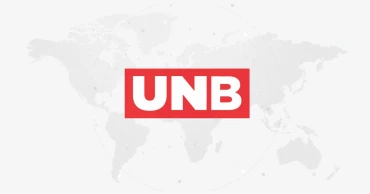
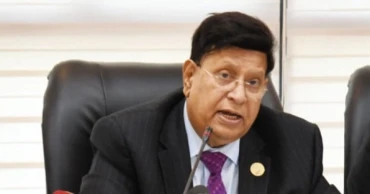
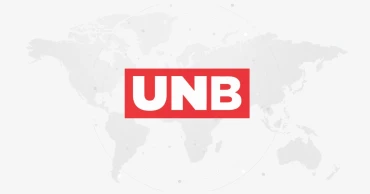

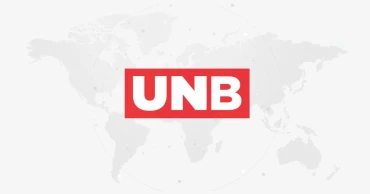
.jpg)
